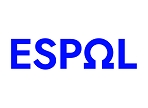FORMATIONS |
Fiche détaillée d'un cours
 | Think tank in EU governance | ||
2023-2024 | FrESPOL European School of Political and Social Sciences
(
ESPOL
)
| ||
Code Cours : | 2324-ESPOL-EIS-EN-4016 | ||
| Niveau | Année de formation | Période | Langue d'enseignement |
|---|---|---|---|
| S1 | FrAnglais |
| Professeur(s) responsable(s) | Alberto Horst NEIDHARDT |
|---|---|
| Intervenant(s) | Pas d'autre intervenant |
- Ce cours apparaît dans les formations suivantes :
- ESPOL - Master 1 Food Politics and Sustainable Development - S1 - 3 ECTS
ESPOL - Master 1 Global and European Politics - S1 - 3 ECTS
ESPOL - Master 1 International and Security Politics - S1 - 3 ECTS
ESPOL - Master 1 Digital Politics and Governance - S1 - 3 ECTS
Pré requis
The course has no specific prerequisites
Objectifs du cours
The goal of the course is to introduce students to think tanks in the EU setting and beyond. Students will acquire an understanding of the work and activities conducted by think tanks, their role in policy making and differences compared to other research organisations. While not aiming to exhaustively prepare students in a specific policymaking field, the course focuses on three specific policy areas: migration, climate/environment and foreign policy. Students will learn to critically engage with policy analysis in these areas, and will be asked to write a short policy brief in one of these three areas.
Contenu du cours
The course is divided in three blocks/clusters. As part of the first block, the first class will provide an overview of the origins of think tanks and their evolution; it will examine their goals and discuss what differentiates them from academic institutions. The second class will discuss questions around the independence of think tanks, their financial model and sources, the links with the private sector and political lobbies, among others. As part of the second block, the third class will move on to discuss more specifically what types of activities think tanks organise and their internal structures. The fourth class will discuss the ‘impact’ of think tank’s activities: how this is measured, and how can think tank and analysts increase their relevance in the current world. As part of the third block, the fifth class will specifically look at different types of written analyses by that think tanks, focusing on the three policy areas examined in the course. The sixth and final class will be dedicated to possible implementation problems that may arise when conducting research for a think tank.
Modalités d'enseignement
Organisation du cours
- Interactive seminars
- Home readings
- Online research
Méthodes pédagogiques
Évaluation
Contrôle continu : coeff. 100
Bibliographie
Class 1, 15 September:||
Mandatory readings:||- Rediscovering a sense of purpose: the challenge for western think-tanks, Robin Niblett (available on ICAMPUS/MOODLE)
- Am I an academic?, Sven Biscop, available at: https://www.egmontinstitute.be/am-i-an-academic/
- One policy brief on migration, on climate and foreign policy (To be sent by course convenor one week before)
Optional readings:||- U.S. and German Think Tanks in Comparative Perspective, Josef Braml, available at:http://epa-journal.eu/download/4.-u.s.-and-german-think-tanks-in-comparative-perspective.pdf
- Waning Trust in (Scientific) Experts and Expertise? Recent Evidence from the United States and Elsewhere, Martin Thunert, available at: http://epa-journal.eu/download/4.-u.s.-and-german-think-tanks-in-comparative-perspective.pdf
- Think Tanks as an Emergent Field, Thomas Matthew Medvetz, available at: https://www.ssrc.org/publications/think-tanks-as-an-emergent-field/
Class 2, 22 September:||
Mandatory readings:||- Why Everyone Hates Think Tanks The world needs policy professionals. Respecting them is another matter?, Matthew Rojansky and Jeremy Shapiro, available at: https://foreignpolicy.com/2021/05/28/why-everyone-hates-think-tanks/
- What are think tanks for? Policy research in the age of anti-expertise, Rosa Balfour, available at: https://www.lse.ac.uk/ideas/publications/updates/think-tanks
- 3 Project proposals (To be sent by course convenor one week before).
Optional:||- Waning Trust in (Scientific) Experts and Expertise? Recent Evidence from the United States and Elsewhere, Martin Thunert, available at: http://epa-journal.eu/download/4.-u.s.-and-german-think-tanks-in-comparative-perspective.pdf
- What to Think About Think Tanks: Towards a Conceptual Framework of Strategic Think Tank Behaviour, Alexander Ruser, available at: https://link.springer.com/article/10.1007/s10767-018-9278-x
Class 3, 10 November:||
Mandatory readings:||- Shaping the Policy Agenda: Think Tank Activity in the European Union, Philippa Sherrington (available on ICAMPUS/MOODLE)
- Think Tanks and the Transnationalization of Foreign Policy, James G. McGann, available at: https://www.jstor.org/stable/26322981
- The students are required to choose and watch one recorded public event available online organised by a think tank on either one of the three focus areas (migration, climate or foreign policy).
Optional readings:||- Revisiting the think-tank phenomenon, Hartwig Pautz (attached)
Class 4, 17 November:||
Mandatory readings:||- Measuring the Influence of Think Tanks, Murray Weidenbaum, available at: https://link.springer.com/article/10.1007/s12115-009-9292-8
- Measuring Think Tank Performance An Index of Public Profile, Julia Clark and David Roodman, available at: https://www.cgdev.org/sites/default/files/think-tank-index_0_0.pdf
- One policy brief on migration, on climate or foreign policy (To be sent by course convenor one week before).
Optional reading:||- What Difference does a Policy Brief Make? Penelope Beynon, Christelle Chapoy, Marie Gaarder and Edoardo Masset, available at: https://www.weadapt.org/sites/weadapt.org/files/legacy-new//knowledge-base/files/1233/5241af740b49cfullreport-what-difference-does-a-policy-brief-make-2pdf-adobe-acrobat-pro.pdf
- 2020 Global Go To Think Tank Index Report, James G. McGann, available at: https://repository.upenn.edu/bitstreams/8fa7709a-310d-43b2-bee6-94c49db23e41/download
Class 5, 24 November:||
Mandatory readings:||- EPC writing guidelines (available on ICAMPUS/MOODLE)
- The New Practice of Public Problem Solving, Tara Dawson McGuinness an
* Informations non contractuelles et pouvant être soumises à modification


















































































